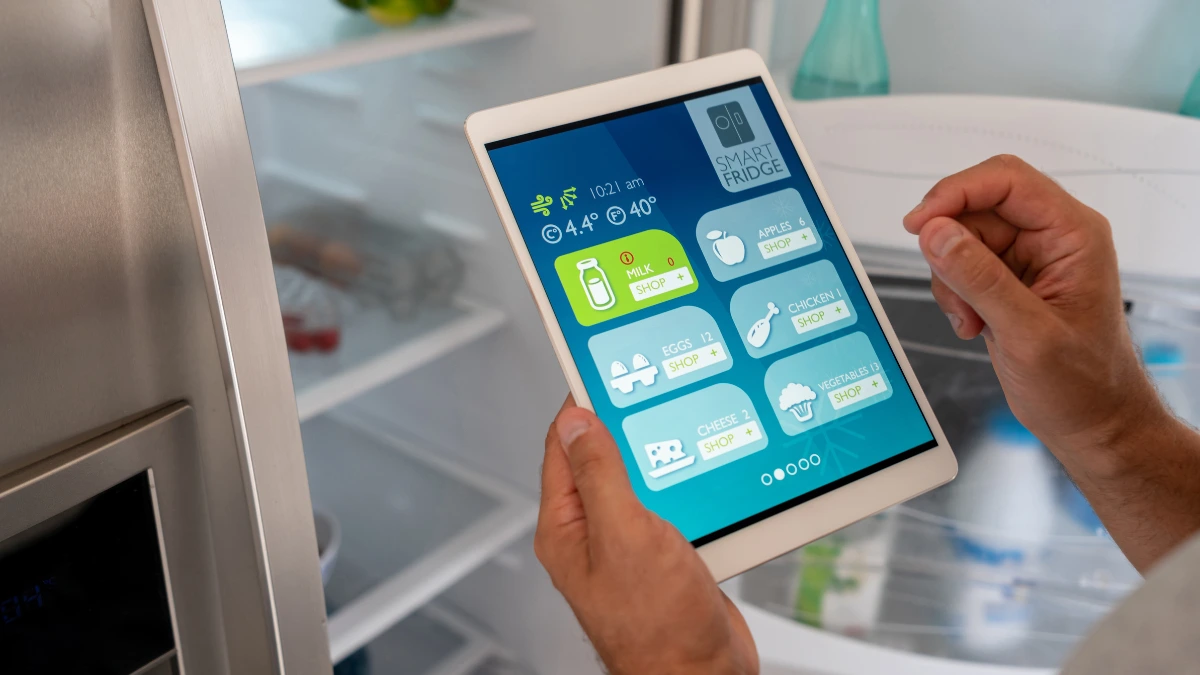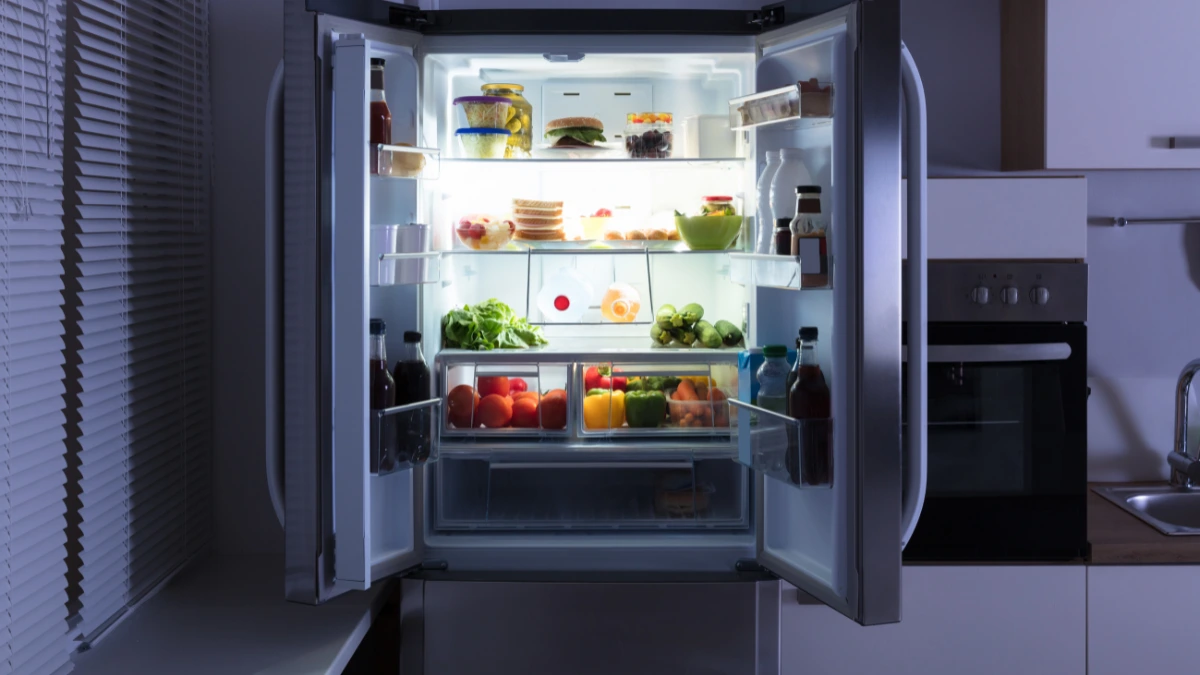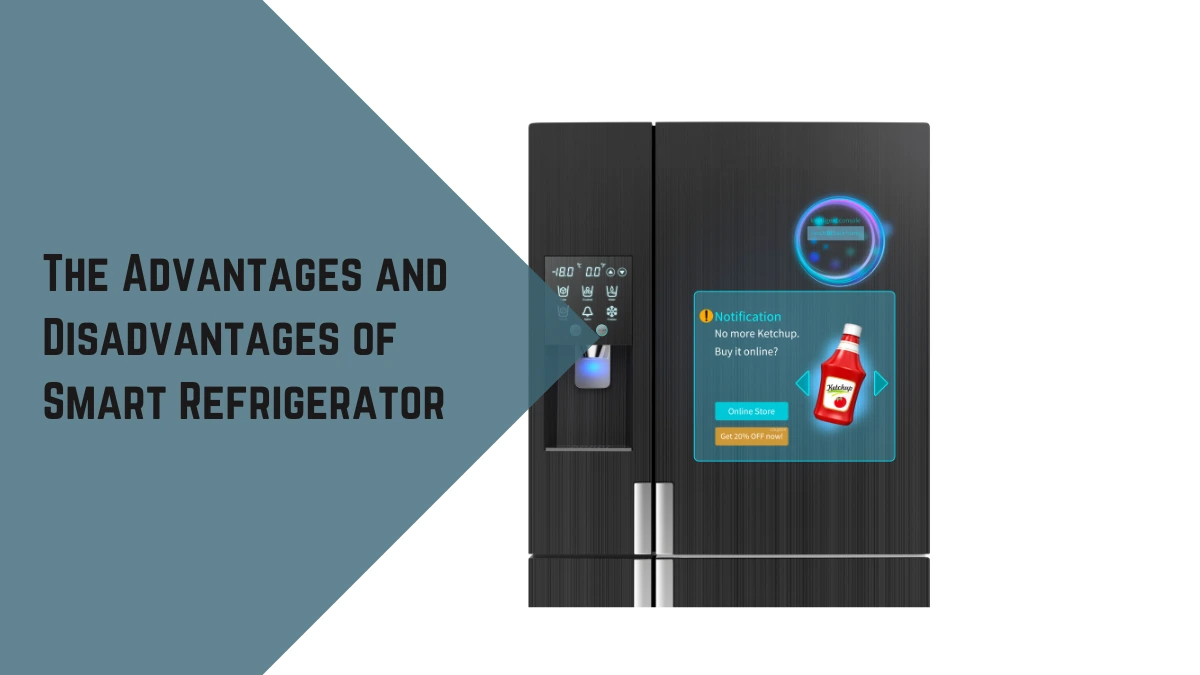Smart refrigerator that utilize Internet of Things (IoT) technology and sophisticated features are the target of many people. However, of course, the many advantages of features offered by smart technology on refrigerator still have several disadvantages.
The disadvantages of smart refrigerator are from the increased use of electrical power to the fact that spare parts are difficult to obtain.
In this article, we will explain the advantages and disadvantages of smart refrigerator that you can consider before choosing to use them.
Smart Refrigerator Advantages

1. Advanced connectivity
Smart refrigerator can also be integrated with other smart home systems. For example, you can connect to a smart TV to get weather information, the latest news, and more. This ease of integration makes your life easier and more organized.
You can also connect the technology to your smartphone or other smart devices. As a result, you can monitor the contents of the technology, adjust the temperature, and even make a shopping list without having to open the door.
2. Notifications and reminders
Another advantage of a smart refrigerator is that it can give you notifications and reminders. For example, you’ll get notifications if the door is open too long or if food is nearing its expiry date. This feature is very helpful in reducing energy waste and maintaining food quality.
3. Temperature and humidity detector
This product is also equipped with a temperature and humidity sensor that can detect changes in the refrigerator.
This sensor will automatically adjust the conditions in the refrigerator to maintain food freshness. That way, you no longer need to worry about the quality of the stored food.
4. Energy saving
This product has been designed with energy-saving technology. This refrigerator uses smart sensors that can adjust the temperature based on the amount and type of food stored.
This not only helps keep food fresher for longer but also reduces electrical energy consumption in your home.
Smart Refrigerator Disadvantages

1. Expensive initial costs
The advanced technology used, such as WiFi connectivity, voice control, touch screens, and artificial intelligence (AI) features, contributes to high production costs and selling prices.
Therefore, buying a smart refrigerator can be quite a big investment for some people, especially when compared to more affordable conventional models.
2. Risk of hacking
Smart refrigerators connected to the internet present cybersecurity risks. If security is not maintained properly, your data could become vulnerable to cyber-attacks.
Therefore, it is important to always update software and use a secure network.
3. Soaring electricity costs
Smart refrigerators have a higher sensitivity to power surges compared to ordinary technology.
Due to its higher sensitivity, power surges or sudden blackouts can damage inverter components.
4. Spare parts are expensive and difficult to obtain
The components used in a smart refrigerator are more complex compared to a regular technology. The smart technology has additional control modules and sensors that are not found in regular models.
As a result, spare parts for smart refrigerators tend to be more expensive and harder to find on the market. Not all spare parts stores stock components for the technology.
These are the advantages and disadvantages of smart refrigerators that you can consider before you choose to use them. Hopefully, this article can help you in determining the best technology for you. [UN]

